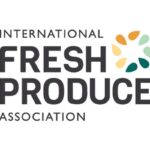Freshfel applauds new European Union ammonium compound stance
Produce association Freshfel has welcomed the European Union's (E.U.) regulatory changes for quaternary ammonium compound (QAC) residues, after detections led to "considerable disruptions" in the trade in recent weeks. 
The E.U. has adopted recommendations from the Standing Committee of the Food Chain and Animal Health (SCoFCAH) to enforce a safety level of 0.5ppm for QACs didecyl dimethyl ammonium chloride (DDAC) and benzalkonium chloride (BAC).
The new regulations are more lenient than the default maximum residue level of 0.01ppm, after the SCoFCAH accepted studies from Germany's Federal Institute for Risk Assessment (BfR) that the 0.5ppm level was safe for human consumption.
However, it is understood technology from German company Eurofins has made it easier to detect traces of QACs, which are cleaning agents in the food supply chain and used as pesticides in some countries.
The E.U. does not allow for QACs to be used directly on fruit and vegetables, so the issue is mainly for the post harvest part of the supply chain.
"Many companies around the world are using it on their lines and surfaces in cleaning fruit, so if they do that and they don’t rinse properly it could be the case that it arrives in Europe, and with this technology the ammonium compounds are found," said a source close to www.freshfruitportal.com.
In a release, Freshfel said the extensive presence of unintentional residues on a variety of foodstuffs required an urgent and temporary solution pending further investigations.
"The swift and responsible attitude from the fresh produce supply chain, investigating all possible contamination routes and providing analysis results, has contributed to a fast response from the EU Commission and Member States," said Freshfel director for quality and sustainability Frederic Rosseneu.
"The adopted guidelines provide the industry with enough time to further investigate the exact causes of cross-contamination and discontinue any non-essential uses throughout the supply chain."
Freshfel will be working with authorities over the coming months to help find a long-term solution to the issue, with a workshop to be organized in Brussels on Oct. 2.








































